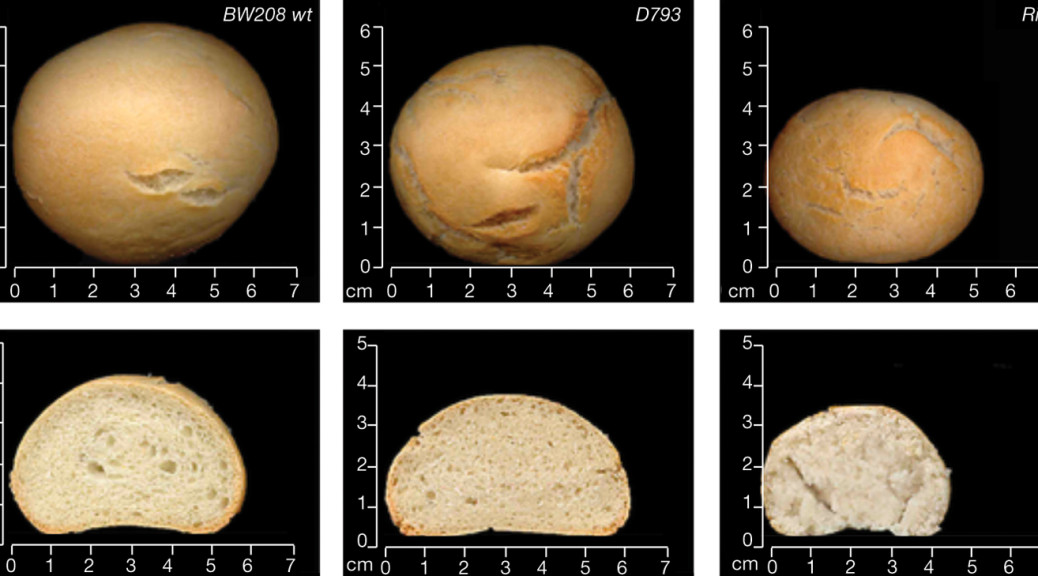Two German plant breeders this April released newly developed tomato and wheat varieties under open-source licenses. The breeders, Göttingen University’s Bernd Horneburg and his team, and Dottenfelderhof researcher Hartmut Spieß, issued the licenses to encourage other scientists and breeders to experiment and improve these plants varieties under a legal framework. Under the OpenSourceSeed initiative, agricultural scientists can access open-source seeds, by paying a small fee to cover maintenance breeding and delivery costs. They are then allowed to “use the seeds in multiple ways,” according to the open-source license. But should users develop subsequent varieties, they are not allowed to issue patents on them, and instead must agree to release them under the original open-source license. Continue reading Plant breeders test drive first open-source seed bank
Tag Archives: Agriculture
German breeders develop ‘open source’ plant seeds
There’s open-source software, open-source pharma research, and open-source beer. Now, there are open-source seeds, too. Breeders from Göttingen University in Germany and Dottenfelderhof agricultural school in Bad Vilbel, Germany, have released tomato and wheat varieties under an open-source license. Their move follows similar schemes for sharing plant material in India and the United States, but is the first that provides legal protection for the open-source status of future descendants of plant varieties. Continue reading German breeders develop ‘open source’ plant seeds
Will Europe toast GM wheat for gluten sufferers?
Soon, individuals with celiac disease in southern Spain will begin receiving regular allotments of bread. Rather than misguided charity, this will be a clinical trial of a new type of dough made from genetically modified (GM) wheat. The wheat has been altered to be low in gliadins—the portion of gluten proteins that are toxic to people with celiac disease. If successful, the trial could bolster growing research efforts to engineer wheat to be compatible with the immune systems of the ~1% of the global population with celiac disease and the much larger number of people with gluten allergies.
Low-gluten wheat could also open a new front in the battle for GM food acceptability in Europe. If Europeans are ever going to accept a GM food, celiac-safe wheat may be a good candidate. European consumers accounted for over  1.1 ($1.21) billion of nearly
1.1 ($1.21) billion of nearly  1.9 billion worldwide gluten-free food market, according to market research firm Euromonitor International. Global gluten-free bakery sales are expected to grow at >7% annually, the firm predicts. But because this and other efforts to modify wheat involve inserting genetic elements to silence genes, they are subject to a European regulatory process closely tied to anti-GM politics. And even if such legal barriers to marketing are overcome, marketing such a wheat would require not just farmers, but millers, bakers and consumers to be persuaded that it is worthwhile. Continue reading Will Europe toast GM wheat for gluten sufferers?
1.9 billion worldwide gluten-free food market, according to market research firm Euromonitor International. Global gluten-free bakery sales are expected to grow at >7% annually, the firm predicts. But because this and other efforts to modify wheat involve inserting genetic elements to silence genes, they are subject to a European regulatory process closely tied to anti-GM politics. And even if such legal barriers to marketing are overcome, marketing such a wheat would require not just farmers, but millers, bakers and consumers to be persuaded that it is worthwhile. Continue reading Will Europe toast GM wheat for gluten sufferers?
¿Celebrará Europa la llegada del trigo transgénico para quienes no toleran el gluten?
Pronto, los celíacos en el sur de España comenzarán a recibir cuotas regulares de pan. Lejos de ser una caridad desacertada, se trata de un ensayo clínico de un nuevo tipo de masa hecha de trigo genéticamente modificado (GM). El trigo ha sido alterado para ser bajo en gliadinas –la porción de las proteínas del gluten que son tóxicas para las personas con enfermedad celíaca–. Si tiene éxito, el ensayo reforzará los crecientes esfuerzos de investigación para crear trigo que sea compatible con el sistema inmune del ~1% de la población mundial que padece la enfermedad celíaca y una cantidad mucho mayor de personas con alergia al gluten.
El trigo bajo en gluten también podría abrir un nuevo frente en la batalla por la aceptación de alimentos GM en Europa. Si los europeos van a llegar a aceptar alguna vez un alimento GM, el trigo apto para celíacos sería un buen candidato. Los consumidores europeos representaron más de €1,1 mil millones ($1,21) de los casi €1,9 mil millones que suma el mercado mundial de alimentos sin gluten, de acuerdo con la firma de investigación de mercado Euromonitor International. Según las predicciones de esta organización, se espera que las ventas mundiales de panificados sin gluten crezcan más de 7% por año. Pero debido a que este y otros esfuerzos para modificar el trigo implican insertar elementos genéticos para silenciar genes, están sujetos a un proceso de regulación europeo estrechamente ligado a la política anti-GM. E incluso si se superan estas barreras legales para la venta, la comercialización de un trigo de este tipo requeriría no solo convencer a los agricultores de que vale la pena, si no también a los molineros, los panaderos y los consumidores. Continue reading ¿Celebrará Europa la llegada del trigo transgénico para quienes no toleran el gluten?
